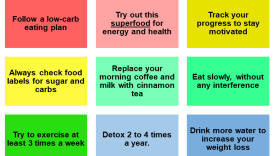Proteins: The Secret Weapon for a Vibrant and Healthy Life

In an era where health and fitness have taken center stage, the significance of maintaining a well-balanced diet cannot be overstated. Among the essential nutrients that contribute to a healthy lifestyle, proteins stand out as the building blocks of life. Whether one is an athlete training for a marathon or someone simply aiming to embrace healthier eating habits, understanding the vital role of proteins is crucial for achieving optimal well-being.
- Proteins: The Secret Weapon for a Vibrant and Healthy Life
- Connecting the Dots Between Diet and Health
- The Ripple Effect of Protein Intake
- The Importance of Proteins
- The Building Blocks of Life
- Health Benefits That Go Beyond Muscle
- Protein-Rich Foods for Optimal Health
- Lean Meats and Poultry
- Plant-Based Protein Sources
- The Role of Proteins in Muscle Building
- Understanding Muscle Protein Synthesis
- Optimal Protein Quantities
- Protein Supplements for Active Lifestyles
- The Convenience Factor
- Choosing the Right Supplement
Connecting the Dots Between Diet and Health
Imagine waking up after a restful night, energized and ready to tackle the day’s challenges. A big part of that energy can stem from consuming adequate amounts of protein. It’s not just about exercise; what one puts on their plate often determines how they feel and function throughout the day. A personal experience illustrates this beautifully. A few years ago, a friend decided to change her diet to include more protein-rich foods. She replaced her typical breakfast of sugary cereals with a hearty omelet packed with vegetables and cheese. Not only did she notice a significant improvement in her energy levels, but her productivity soared. Protein enabled her to conquer her hectic mornings with much more vigor.
The Ripple Effect of Protein Intake
Here are a few reasons why protein should be a priority on your plate:
- Muscle Repair and Growth: Proteins aid in recovering and building muscle, making them essential for those who work out regularly.
- Satiety: Including protein in meals can help individuals feel fuller for longer, reducing the likelihood of unhealthy snacking.
- Improved Metabolism: A higher protein intake can boost metabolic rates, helping with weight management or loss.
As we delve deeper into this article, it will become increasingly clear that proteins are not just another dietary option; they are fundamental to maintaining health, supporting ongoing muscle growth, and enhancing overall well-being. Understanding where to find these nutritious elements and how to incorporate them into daily eating habits will be key to unlocking their full potential.
The Importance of Proteins
After establishing how crucial proteins are in fueling our daily activities, it’s time to dive deeper into why they hold such a pivotal place in our diets. Proteins are not only about muscle growth; they play diverse roles in maintaining various bodily functions, which makes them a cornerstone of any nutritious meal.
The Building Blocks of Life
To understand the importance of proteins, it helps to see them as the building blocks of the body. Made up of amino acids, proteins are necessary for:
- Cell Repair and Growth: Cellular regeneration is a continuous process, and proteins facilitate this by allowing cells to grow and repair themselves effectively.
- Enzyme Functionality: Many enzymes are proteins that catalyze biochemical reactions. Without these proteins, key processes in the body would come to a standstill.
- Hormonal Balance: Proteins are also involved in hormone production, which regulates various functions, including metabolism, growth, and mood.
A story that highlights this importance involves a family member who faced chronic fatigue for years. Despite eating a balanced diet, their energy levels seemed to dwindle throughout the day. A nutritionist discovered that while the meals were nutritionally sound, they were severely lacking in protein. After integrating protein-rich foods into their diet, like legumes, chicken, and dairy, their energy levels surged, showcasing just how pivotal proteins can be.
Health Benefits That Go Beyond Muscle
The advantages of consuming an adequate amount of protein stretch far beyond muscle health. Here are some remarkable benefits:
- Boosted Immunity: Proteins are essential in creating antibodies, which help the body ward off illnesses and infections.
- Healthy Skin and Hair: Collagen, a protein, is vital for maintaining skin elasticity and promoting lustrous hair.
- Balanced Blood Sugar Levels: Including proteins in meals can help stabilize blood sugar, preventing spikes and crashes that lead to fatigue.
In summary, proteins are not merely a dietary element aimed at bodybuilding; they are fundamental to sustaining life itself. As we move on, we will explore specific protein-rich foods and how they can be integrated into everyday meals, ensuring that individuals can make healthier choices effortlessly.
Protein-Rich Foods for Optimal Health
Now that we’ve covered the importance of proteins in our diets, it’s time to explore specific protein-rich foods that can enhance overall health. Whether one is a lover of lean meats or a dedicated plant-based eater, numerous options exist to ensure sufficient protein intake.
Lean Meats and Poultry
For those who enjoy meat, lean cuts offer a fantastic way to incorporate proteins without excessive fat. Lean meats not only provide essential amino acids but also come packed with vital nutrients like iron and zinc. Common examples of lean meats include:
- Chicken Breast: A staple in many households, it is low in fat and high in protein, making it a perfect post-workout meal.
- Turkey: Often found in holiday feasts, turkey serves as an excellent protein source and is equally beneficial year-round.
- Lean Beef Cuts: Choices like sirloin or tenderloin present protein alongside important nutrients for maintaining energy.
An experience shared by a friend emphasizes the power of lean meats. After switching from fatty cuts to lean chicken breasts in her meal prep, she noticed an improved recovery after workouts and a decrease in body fat. The difference in how she felt was a game-changer!
Plant-Based Protein Sources
On the other end of the spectrum, plant-based sources of protein have gained popularity, especially among vegans and vegetarians. These options provide health benefits that support overall wellness while also being eco-friendly. Noteworthy plant-based protein sources include:
- Legumes: Beans, lentils, and chickpeas are not only affordable but exceedingly versatile, perfect for soups, salads, or stews.
- Tofu and Tempeh: Both are derived from soy and can be deliciously marinated and cooked in various dishes, serving as excellent meat substitutes.
- Quinoa: A complete protein grain, quinoa is often praised for its nutritional density, making it a great side dish or salad base.
A personal anecdote comes from an acquaintance who chose a vegetarian lifestyle and began incorporating more legumes and quinoa into her weekly meals. She found herself not only meeting her protein needs but also enjoying a wider range of flavors and textures in her diet. Incorporating a variety of protein-rich foods, whether from animal or plant sources, allows individuals to balance their meals effectively. As we continue exploring the roles of proteins in our lives, let’s delve into how they contribute specifically to muscle building.
The Role of Proteins in Muscle Building
Having explored various protein-rich foods, it’s essential to understand how proteins play a crucial role in muscle building. For fitness enthusiasts or anyone looking to enhance their physical strength, recognizing how proteins aid in muscle development is vital for achieving desired results.
Understanding Muscle Protein Synthesis
Muscle protein synthesis (MPS) is the process where the body repairs and builds new muscle fibers after exercise. This process is heavily influenced by protein intake. When individuals engage in strength training or any form of resistance exercise, muscle fibers undergo microscopic damage. It is through the consumption of proteins that the body can repair these fibers, leading to muscle growth. Key aspects of this process include:
- Amino Acids: Proteins are made up of amino acids, which are essential for repairing and building muscle tissue. Leucine, in particular, is considered a key amino acid for stimulating MPS.
- Timing Matters: Consuming protein shortly after workouts can maximize the muscle recovery process. Aim for a protein-rich snack or meal within two hours post-exercise.
- Consistent Intake: Regularly incorporating protein into daily meals supports ongoing muscle repair and growth, rather than just relying on post-workout protein alone.
An example that illustrates this concept involves a friend who took up weightlifting as a new hobby. Initially, he focused strictly on lifting without paying much attention to his diet. After a few months, he made a concerted effort to include protein-rich foods after each workout. The change was significant – he saw not only improved muscle definition but also enhanced strength and endurance.
Optimal Protein Quantities
When considering how much protein to consume for muscle building, here are some general guidelines:
- General Recommendation: About 1.2 to 2.2 grams of protein per kilogram of body weight, based on activity levels.
- Post-Workout: Aim for at least 20-30 grams of protein after workouts to facilitate maximum recovery.
In summary, proteins are not just a dietary component; they are essential partners in the journey of building muscle. Understanding their role can lead to more informed choices, ensuring individuals are set up for success in their fitness endeavors. Next, we will explore how protein supplements can fit into active lifestyles, providing an efficient means to meet protein needs.
Protein Supplements for Active Lifestyles
Having established the critical role of proteins in muscle building, it’s only fitting to explore how protein supplements can enhance an active lifestyle. With busy schedules and varied dietary preferences, protein supplements offer convenience and efficiency for anyone looking to boost their protein intake.
The Convenience Factor
For individuals juggling work, family, and fitness, preparing protein-rich meals can sometimes be a challenge. This is where protein supplements come into play. They are not just for hardcore gym-goers; anyone can benefit from their ease of use. Consider the case of a colleague who regularly participates in morning workouts before heading to the office. He found it tough to grab breakfast in the mornings while still ensuring he met his protein goals. By incorporating a protein shake into his routine, he could quickly blend his favorite protein powder with water or milk, allowing him to consume a nutritious breakfast on the go. Some commonly used protein supplements include:
- Whey Protein: Fast-absorbing and great for post-workout recovery. It contains all essential amino acids and is particularly rich in leucine, which supports muscle repair.
- Casein Protein: Slower to digest, making it ideal for nighttime consumption to support muscle recovery while sleeping.
- Plant-Based Proteins: Options like pea, hemp, and brown rice protein cater to those looking for dairy-free alternatives.
Choosing the Right Supplement
When considering protein supplements, it’s essential to evaluate a few factors:
- Dietary Restrictions: Choose a protein that aligns with dietary preferences, whether it’s whey, casein, or plant-based.
- Ingredients: Look for quality protein powders with minimal additives and sugars to maximize health benefits.
- Protein Content: Aim for supplements that contain 20-30 grams of protein per serving to ensure effectiveness.
Incorporating protein supplements can play a significant role in meeting daily protein requirements, especially for those with high physical activity levels. They bridge the gap between meals and support overall health and muscle growth. As we wrap up this discussion, it’s important to remember that while supplements are beneficial, they should complement a well-rounded diet rich in whole foods for sustained health and vitality.





